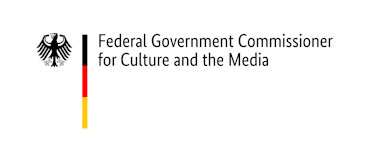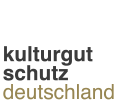Codes of ethics
Codes of ethics are voluntary self-regulation mechanisms that outline the ethical benchmarks of a particular company or of an organization representing the interests of a particular group and its guiding principles for action.
Reputable art dealers have, for many years, abided by the standards enshrined in the codes of ethics adopted by the associations to which they belong. The German Act on the Protection of Cultural Property (Kulturgutschutzgesetz, KGSG) incorporated the substance of these voluntary commitments by art dealers in the form of due diligence requirements imposed by law. The adoption of these mandatory standards at statutory level means that the same rules now apply to all market participants on a binding basis. Disreputable dealers find it more difficult to do business, which promotes fair competition on the art market and benefits those who are serious about doing business in this market, and confidence levels are higher among art buyers, which benefits the dealers at whom the provisions are targeted.
Various codes of ethics at national and international level set out benchmarks for the professional treatment of cultural property and the avoidance of dealing in objects of unlawful origin. A non-exhaustive overview is provided below.
International codes of ethics
Article 1 of the 1999 “International Code of Ethics for Dealers in Cultural Property” reads as follows:
“Professional traders in cultural property will not import, export or transfer the ownership of this property when they have reasonable cause to believe it has been stolen, illegally alienated, clandestinely excavated or illegally exported.”
Individual industries such as the numismatics sector have also included certain voluntary commitments in their codes of ethics, for example in the Code of Ethics of the “International Association of Professional Numismatists” (IAPN), which is available only in English:
„[...] members pledge to conduct themselves as follows [...] 2. To guarantee that good title accompanies all items sold, and never knowingly to deal in any item stolen from a public or private collection or reasonably suspected to be the direct product of an illicit excavation, and to conduct business in accordance with the laws of the countries in which they do business.“
Codes of conduct for members have been published at international level not only by organizations representing dealers, but also by organizations representing museums.
For example, Section 2.3 of the “ICOM Code of Ethics for Museums” published by the International Council of Museums, the first version of which was adopted in 1986, contains the following provisions on the acquisition of collections:
“Every effort must be made before acquisition to ensure that any object or specimen offered for purchase, gift, loan, bequest, or exchange has not been illegally obtained in, or exported from its country of origin or any intermediate country in which it might have been owned legally (including the museum’s own country). Due diligence in this regard should establish the full history of the item since discovery or production.”
Further examples include the “ICOM Code of Ethics for Natural History Museums”, which is available only in English. Section 2A of this Code of Ethics reads as follows:
„Institutions should ensure that all such material is obtained legally. Material should never be purchased, imported, collected or removed in contravention of national and international legislation or conventions pertaining to such material. It is recognised that it is sometimes difficult to establish legal acquisition. If material is acquired and subsequently discovered to have been collected illegally, the relevant authorities should be informed and further steps be taken as required by the country or countries involved.“
National codes of ethics
By way of analogy to the voluntary commitments enshrined in international codes of ethics, Section 1 of the Code of Ethics for art dealers of the German Art Dealers’ Association (Kunsthändlerverband Deutschland) states the following:
„1. Members shall do everything in their power to avoid any involvement in the importing, exporting, exhibiting, valuing, purchasing or transferring of an object if there are valid reasons for supposing:
a) that the seller of said object is not authorised to dispose of the object, and in particular that the object may have been traded or acquired unlawfully by means of theft or otherwise;
b) that an imported object has been acquired in or exported from its country of origin in violation of the laws that apply in said country;
c) that an imported object has been acquired under questionable or unlawful circumstances from official excavation sites or from unlawful, clandestine or unauthorised excavations.”
Section 8 of the Code of Ethics of the Association of German Art Auctioneers (Bundesverband Deutscher Kunstversteigerer) contains provisions that are substantively similar:
“[Members hereby undertake…] not to offer for sale any goods that are believed to have been acquired through theft, misappropriation or otherwise illegally, and not to offer for sale anything in contravention of a country’s import and export laws.”
The “Standards for Museums” published by the German Museums Association (Deutscher Museumsbund) explain and translate the rules of conduct set out by ICOM as follows:
“The ethical principles outlined in the ICOM Code of Ethics in relation to the acquisition of objects for museum collections, for example the provisions of national and international law on the treatment of cultural property, shall be observed.”
List of links
Original version of the “International Code of Ethics for Dealers in Cultural Property”
Original version of the “ICOM Code of Ethics for Natural History Museums”
Code of Ethics of the “International Association of Professional Numismatists”

